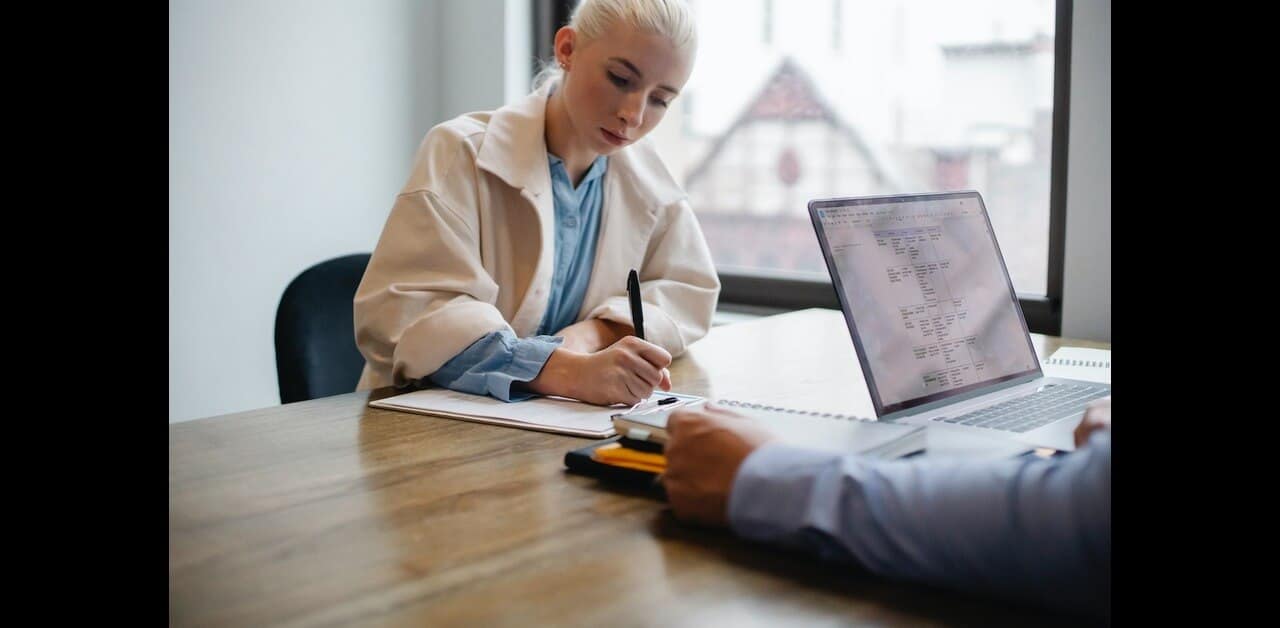Child custody proceedings can be emotionally challenging and legally complex. When it comes to filing for child custody in Australia, understanding the necessary paperwork is crucial. This article serves as a comprehensive guide, outlining the key documents required for filing for child custody under Australian laws.
By familiarising yourself and knowing what paperwork do you need to file for custody, you can navigate the process more effectively and ensure the best interests of the child are upheld.
The decision of whether to file for custody first is a personal one, and there is no definitive answer that applies universally. However, there are several factors to consider when contemplating this decision:
Table of Contents
Toggle1. Open Communication and Mediation:
It is generally recommended that parents attempt to resolve custody disputes amicably through open communication and mediation. Initiating a conversation with the other parent to discuss your concerns and potential parenting arrangements can be a constructive first step.
Child Custody Mediation Process
An impartial third party, known as a mediator, helps separated or divorced parents communicate and negotiate during the voluntary and private mediation process. The main goal of mediation is to assist parents in coming to mutually agreeable parenting arrangements, such as child custody and visitation rights.
Mediation custody is an essential part of the family law system and is strongly advised before turning to legal action. To advance the best interests of their children, parents are encouraged to actively participate in mediation under the Family Law Act of 1975, which emphasises the value of non-adversarial dispute resolution.
Mediation Benefits
When it comes to resolving disagreements, mediation custody has many benefits, especially when it comes to child custody issues. Here are some of the benefits:
- Child-Focused Approach: Mediation puts the best interests of the child at the forefront. It allows parents to work together and craft a parenting plan that considers the unique needs and circumstances of their children. The child’s welfare, emotional well-being, and continuity of relationships with both parents are prioritised during the mediation process.
- Cost-Effective: Compared to litigation, mediation offers a more cost-effective option for resolving custody disputes. Court battles can be lengthy and expensive, whereas mediation provides an opportunity for parents to resolve their issues more efficiently and affordably.
- Control and Flexibility: Mediation empowers parents by allowing them to maintain control over the outcome of their custody arrangements. Unlike court decisions, which can be rigid and impersonal, mediation provides a flexible environment where parents can tailor agreements to suit their family’s unique needs and circumstances.
- Preservation of Parent-Child Relationships: Mediation promotes effective communication and cooperation between parents, fostering an environment that supports positive parent-child relationships. By finding common ground and resolving conflicts amicably, parents can create a more harmonious co-parenting dynamic, which can significantly benefit the child’s emotional well-being.
- Reduced Conflict and Stress: Going through separation or divorce is inherently stressful, especially when it involves child custody matters. Mediation aims to reduce conflict and tension by facilitating open and constructive dialogue. It provides a safe space for parents to express their concerns, identify shared goals, and work towards mutually acceptable solutions, ultimately reducing the emotional strain on both parents and children.
Role of Mediators
Mediators are impartial professionals who play a vital role in guiding parents through the mediation process. They aid in setting expectations, facilitating conversations, and promoting effective problem-solving.
While mediators cannot give legal advice, they can enlighten parents about the legal system and assist them in making wise decisions.
It’s important to note that mediation is not suitable in cases where there is a history of domestic violence or child abuse. In such circumstances, the child’s safety and well-being should be given top priority, and the proper legal steps should be taken to safeguard them.
2. Custody Papers to Prepare
Filing for custody first can demonstrate your proactive approach to resolving custody matters and your commitment to your child’s best interests. It allows you to present your case and preferred parenting plan to the court, which may influence the outcome of the proceedings.
Custody Papers
What paperwork do you need to file for child custody? Here are the necessary paperwork requirements and forms that you need to be aware of when filing for child custody, ensuring you are well-prepared and equipped to pursue a successful custody arrangement.
- Initiating Application: To commence formal custody proceedings, you need to file an Initiating Application (Form 1) with the Family Court or Federal Circuit Court. This document outlines your requests and the orders sought regarding child custody. It should include details about your relationship with the child, the current living arrangements, your reasons for seeking custody, and any concerns regarding the other parent’s ability to provide adequate care.
- Affidavit: An affidavit is a written statement made under oath and serves as a crucial document for presenting evidence to the court. In your affidavit, you should clearly outline your reasons for seeking custody and provide relevant supporting evidence. This may include details about the child’s relationship with both parents, their emotional and physical well-being, any instances of family violence, drug abuse, or neglect, and any other factors that could impact the child’s best interests.
- Notice of Risk: If you believe there may be a risk of harm to the child, you should file a Notice of Risk form. This document alerts the court to potential safety concerns and allows them to take appropriate measures to ensure the child’s well-being. The Notice of Risk should outline any incidents or behaviours that raise concerns, such as domestic violence, substance abuse, neglect, or other relevant issues.
- Financial Statements: In child custody cases, financial matters may also come into play, particularly when determining child support arrangements. Both parties will typically need to provide financial statements, including details of income, assets, liabilities, and expenses. These statements help the court assess the financial capabilities of each parent and determine a fair child support arrangement.
- Other Supporting Documents: Depending on the specific circumstances of your case, additional documents may be required. These might include school reports, medical records, counselling reports, or any relevant evidence that supports your claims regarding the child’s well-being and the need for custody.
3. Seeking Legal Advice
Before making any decisions, it is crucial to seek professional legal advice from a qualified custody lawyer. While you can file for custody without a lawyer, they can provide tailored guidance based on your specific circumstances and the relevant laws in your jurisdiction.
4. Urgency and Safety Concerns
If you believe that immediate action is necessary due to concerns about your child’s safety or well-being, it may be appropriate to file for custody first. The court can issue urgent orders to protect the child if there is evidence of risk or harm.
5. Considering Alternate Dispute Resolution
Australia encourages parents to explore alternative dispute resolution methods such as family dispute resolution or mediation. These processes aim to facilitate negotiations and reach mutually agreeable custody arrangements without the need for litigation.
Custody disputes are legal conflicts that arise between parents, or other parties, over the custody and care of a child. These disputes can occur during divorce or separation proceedings or arise independently when two or more parties hold opposing views regarding child custody.
Disputes may involve where the child will reside, who will make decisions regarding their education and medical care, how often they will see each parent and other matters about the child’s welfare. These disputes can have a significant impact on the child’s life and future relationships with their parents.
These disputes are typically resolved through the legal system, either through negotiation or court proceedings.
What Happens Following Child Custody Disputes?
If custody disputes cannot be settled through negotiation or mediation, the court may be requested to intervene and implement a parenting order. The court will consider a variety of factors, including the child’s best interests, when determining custody. A parenting order becomes legally binding and enforceable once it has been issued. Having a child custody lawyer by your side can greatly assist with the case.
If one parent fails to comply with the order, the other parent may petition the court for enforcement. This can include a variety of punishments, such as fines, community service mandates, and in extreme cases, imprisonment.
Custody disputes can be a challenging and emotional process for all involved. However, by working towards a resolution that is in the best interests of the child, parents can ensure that their child’s needs are being met.
The Federal Circuit and Family Law Court of Australia is available to assist parents in making decisions that are in the best interests of their children if court intervention is required.
Also read: Cost of Custody Lawyer: 5 Questions You Might Have
Assisting Our Clients
At Melbourne Family Lawyers, we recently guided a client through the intricate process of filing child custody paperwork in Australia.
Our initial consultation established trust and understanding, enabling us to prioritise the child’s well-being throughout the proceedings.
We educated the client on relevant laws and prepared a comprehensive parenting plan. We meticulously crafted the Initiating Application and Affidavit, presenting compelling evidence in support of our client’s case. Recognising safety concerns, we filed a Notice of Risk form to ensure the child’s protection.
Assisting with financial statements and collecting supporting documents further strengthened our client’s position. Our client-centred approach and child custody legal expertise empowered our client to navigate the complexities successfully.
With a holistic approach, we supported them emotionally, legally, and strategically. Ultimately, we take pride in our role in securing a brighter future for our client’s child.
Melbourne Family Lawyers remain committed to providing comprehensive guidance and compassionate support to clients during challenging child custody proceedings.
Director of Melbourne Family Lawyers, Hayder manages the practice and oversees the running of all of the files in the practice. Hayder has an astute eye for case strategy and running particularly complex matters in the family law system.






2 thoughts on “5 Factors to Consider When Filing for Child Custody”
Hi I just wanted some advice on who can legally have custody of a child
Hi Amanda,
Please feel free to contact our office directly to receive advice tailored to your situation.
Share this to social media